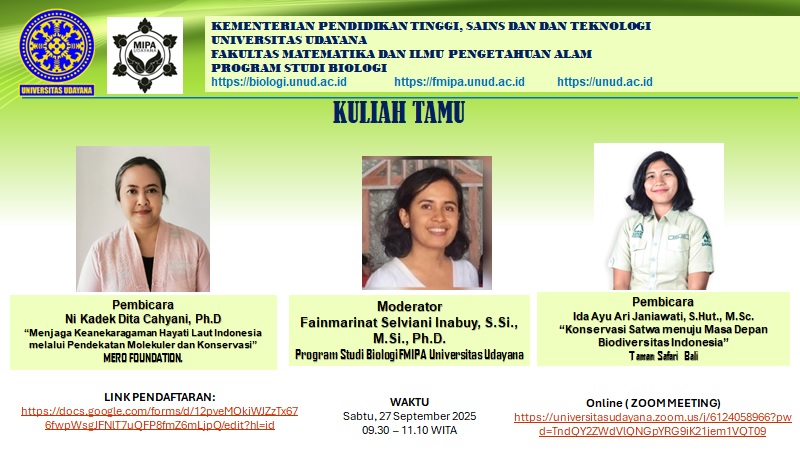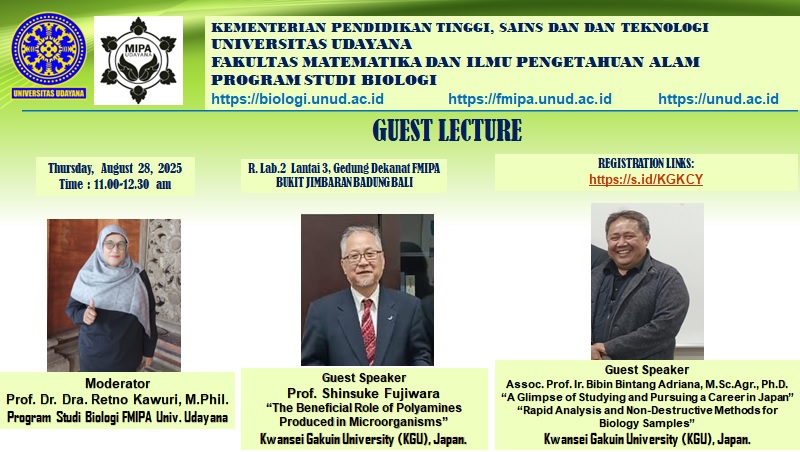Monitoring of Malapari (Pomangia pinnata) at KBS Bukit Pule Songan Batur Village, Kintamani, Bangli, Bali
The Biology Study Program,
Faculty of Mathematics and Natural Sciences, Udayana University in 2022 has
collaborated with CIFOR-ICRAFT, NiFOS, BRIN, KTH Bukit Pule Gunung Batur, and
various other parties in developing a malapari seedling garden (KBS) in Songan
B Village, Kintamani, Bangli. Malapari or known by the scientific name Pomangia
pinnata is one of the plants that can be developed in critical land
restoration with seeds that can be used as biofuel. Malapari planting
carried out in 2022 is then monitored on October 21 and 22, 2023 to evaluate
the success of planting.
Before heading to the malapari
planting area, lecturers and students from the Bachelor, Master, and Docoral of
Biology Programs of FMIPA Udayana University visited the Bukit Pule Gunung
Batur Forest Farmer Group (KTH) which is a partner in the management of this malapari
KBS. Mr. I Nyoman Arnaya and the Bukit Pule Gunung Batur KTH team warmly
welcomed the KTH secretariat to discuss the problems in managing the Malapari
KBS. Some obstacles have been overcome such as lack of water availability by
modifying watering techniques, some seedlings that are not able to grow
properly, and pest attacks. However, there are also several problems that are
of special concern to the Bukit Pule Gunung Batur KTH, one of which is the
threat of forest fires, especially during extreme dry conditions.
After the Bukit Pule KTH secretariat, the activity continued with observations to evaluate the success of growing malapari seedlings. Some seedlings are able to grow very well, while the dominant has relatively slow growth. Some seedlings experience drought and pest infestation, thereby lowering their survival percentage. This is a natural thing, because the seeds planted come from various places in Bali, so it becomes one of the good seedling selection mechanisms. Ni Luh Arpiwi, as the PIC of this activity, hopes that this KBS will run well, so that the community will have additional income because they are able to cultivate critical land that tends to be unproductive.


.jpg)
FACULTY OF MATHEMATIC AND NATURAL SCIENCES